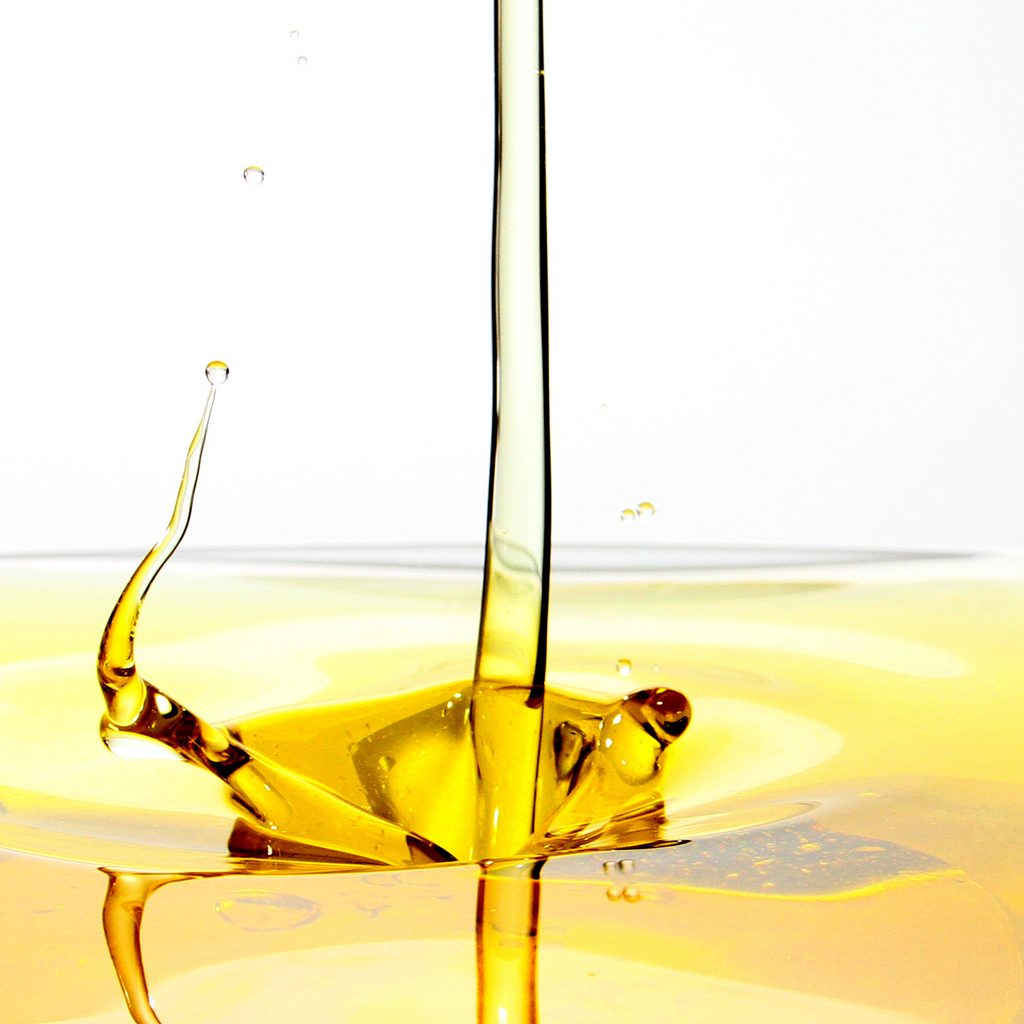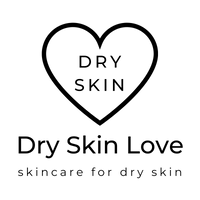Winter dry skin can have a wide spectrum of symptoms - from mild dryness and flaking to severe itching, redness and pain.
Emollients, moisturizers and creams are first-line therapy for the treatment of dry itchy skin.
This article will discuss:
- What is winter dry skin?
- What are emollients?
- What are benefits of emollients?
- Emollients for dry itchy skin
- Moisturizers for itch relief
- Virgin coconut oil
- Hemp seed oil
- Mineral oil
- Almond oil
- Gamma-linolenic acid
- Summary
- References

What is winter dry skin?
'Winter dry skin' is dry skin that develops during the cold winter season.
Winter dry skin can have a wide spectrum of symptoms - from mild dryness and flaking to severe itching, redness and pain.
Winter dry skin symptoms are painful and frustrating, and often associated with skin conditions such as eczema or atopic dermatitis.
Symptoms of winter dry skin include:
- Loss of skin elasticity.
- Skin feels tight, dehydrated.
- Skin appears dull, rough and blotchy.
- Slight to severe flaking, scaling or peeling.
- Fine lines and wrinkles are more pronounced.
- May have irritation and a burning sensation.
- Mild to severe itching.
Learn more: Winter Dry Skin - What is it?

What are emollients?
The word emollient derives from the present participle of the Latin verb emollire, which means "to soften or soothe." Emollire, in turn, derives ultimately from mollis, meaning "soft."
Skincare ingredients that function as emollients include plant butters, vegetable and fruit oils, animal fats, petrolatum, mineral oil, and esters.
Products that function as emollients include moisturizers, creams, oils, serums, and balms.
An emollient is an ingredient in a moisturizer. The job of the emollient is to soften skin.
Learn more: What are Emollients? Best Emollients for Dry Skin.

What are the benefits of emollients?
The function of emollients in skincare is to soften the skin, help the skin retain its moisture and to support the skin’s barrier function.
Skin that does not have sufficient lipid content on its surface can appear dull, dry and rough. Emollients "fill in the gaps" in the skin barrier and soften it along with giving it a healthier look
The role of emollients in the treatment of dry skin conditions is often underestimated. Emollients promote optimal skin health and prevent skin breakdown, and their use can improve quality of life (Moncrieff et al, 2013; Newton et al, 2021).
Emollients are skin conditioning – the give skin a soft and smooth appearance, restoring suppleness and improving elasticity (Brown et al, 2005).
Emollients:
- Make your skin feel soft and smooth.
- Help reduce flaking and roughness from dry skin.
- Help assist the skin barrier by filling in gaps between cells.

Emollients for itch relief
Emollients and barrier-improving creams are the first-line therapy for the treatment of all skin barrier related itch (Pavlis et al, 2018; Moncrieff et al, 2013).
Emollients are a broad category of skincare ingredients and products.
Moisturizers and oils rich such as mineral oil and sweet almond oil can relieve itching. Furthermore, individual fatty acids such a gamma-linolenic acid can also relieve itching.

Moisturizers for itch relief
A moisturizer is a skincare product, such as a cream or a lotion, that is used to prevent dryness in the skin.
Moisturizers contain water and add moisture to the skin.
Moisturizers also contain emollients, humectants and occlusives.
- Emollients soften, smooth, and condition the skin.
- Humectants attract and hold moisture to the skin.
- Occlusives form a protective film that prevents moisture loss from the skin.
The balance of these ingredients determines whether a moisturizer is better for dry skin or oily skin. For instance, a moisturizer for dry skin would contain a high percentage of emollients and occlusives.
Moisturizers have been shown to improve skin barrier function, by preventing excess transepidermal water loss (TEWL) and the entry of external pruritogens, which may help alleviate itching (Kamo et al, 2016).
As the composition of moisturizers varies, the effectiveness of moisturizers can differ depending on the base ingredients and actives.
For instance, using emollients with anti-itch ingredients, e.g., urea (5–10%), glycerol (20%), menthol (1%), zinc oxide (10%) has shown to be effective against pruritus (Weisshaar et al, 2019).
Learn more: 10 Natural Ways to Relieve Dry Itchy Skin

Virgin coconut oil for itch relief
Virgin Coconut oil is easily absorbed into the skin and has clinically been shown to soften and lubricate dry skin and improve symptoms of eczema (Agero et al, 2004; Verallo-Rowell et al, 2008; Evangelista et al, 2014).
Virgin coconut oil contains fatty acids including lauric acid (49%), myristic acid (18%), palmitic acid (8%), caprylic acid (8%), capric acid (7%), oleic acid (6%), linoleic acid (2%), and stearic acid (2%).
Coconut oil has been shown to be as effective and safe as mineral oil when applied as moisturizers for mild to moderate xerosis. Both oils showed effectivity through significant improvement in skin hydration and increase in skin surface lipid levels (Agero et al, 2004).
In a study of children with mild to moderate xerosis, topical applications of virgin coconut oil was shown to be effective in decreasing the severity of the disease, ameliorating disease severity index, and improving skin barrier function (Evangelista et al, 2014).
In a study of children with itching due to cholestatic liver disease, topical treatment with a mixture of coconut-oil with vitamins A and E (final concentration 200,000 IU vitamin-A and 1600 IU vitamin-E/100 mL extra-virgin coconut-oil) was shown to improve dry skin and reduce severity of itching (El-Koofy et al, 2021).
Learn more: 5 Benefits of Virgin Coconut Oil for Dry Skin

Hemp seed oil for itch relief
Cold-pressed, unrefined hemp seed oil is a rich vibrant green and is packed with essential nutrients, including fatty acids, vitamins and antioxidants (Leizer et al, 2000).
Hemp seed oil contains 56% linoleic acid, the major essential n-6 fatty acid found naturally in our skin barrier. Linoleic acid is a precursor for ceramides (Breiden et al, 2014), which are bioactive lipids that play a role in keeping our skin barrier firm, smooth and healthy.
Hemp seed oil contains 16% linolenic acid, an essential omega 3 fatty acid that calms redness and irritation (McCusker et al, 2010).
Hemp seed oil also contains 5% gamma-linolenic acid, a unique n-6 fatty acid with potent anti-inflammatory activity (Kapoor et al, 2006).
Dietary supplementation with hemp seed oil has been shown to improve the skin barrier and significantly alleviate symptoms of eczema, including dry skin and
itchiness (Callaway et al, 2005).
Hemp seed oil has a long history of safe and effective use.
Learn more: 5 Benefits of Hemp Oil for Skin - Soften and Strengthen Your Skin Barrier

Mineral oil for itch relief
Mineral oil (baby oil) has been shown to relieve itching in patients with uremic pruritus (Lin et al, 2012; Karadag et al, 2014; Singh et al, 2021).
For instance, topically applied mineral oil soothed itching briefly and improved sleep quality and quality of life in a randomized clinical trial of 70 hemodialysis patients with pruritus (Karadag et al, 2014).
Applying baby oil is a simple, safe, inexpensive and easily administered treatment for itchy skin in haemodialysis patients (Lin et al, 2012).

Sweet almond oil for itch relief
Sweet almond oil is an excellent emollient and is known for its ability to soften the skin. Topical sweet almond oil has been shown to reduce itch, and significantly improved the itch-related quality of life of patients with uremic pruritis (Afrasiabifar et al, 2017; Mehri et al, 2018).
Sweet almond oil contains approximately 60 - 75% oleic acid, 15 - 30% linoleic acid, 3 - 9% palmitic acid. Interestingly, oleic acid and linoleic acid have both been shown to inhibit TRPV1, a receptor that plays a role in itch and pain responses (Morales-Lázaro et al, 2016).

Gamma-linolenic acid for itch relief
In a study in which topical 2.2% gamma-linolenic acid cream was applied to patients with refractory uremic pruritis, the treatment alleviated itch more than a placebo-based cream did (Chen et al, 2006).
Gamma-linolenic acid is found in various plant seed oils such as borage oil and evening primrose oil.
Hemp seed oil also contains 5% gamma-linolenic acid.

Summary
Winter dry skin can have a wide spectrum of symptoms - from mild dryness and flaking to severe itching, redness and pain.
Emollients, moisturizers and creams are first-line therapy for the treatment of dry itchy skin.
Moisturizers and oils such as virgin coconut oil, hemp seed oil, mineral oil and sweet almond oil can relieve itching. Furthermore, individual fatty acids such a gamma-linolenic acid can also relieve itching.
Do you want healthy skin?
Sign up for Dry Skin Love Newsletter below

References
Afrasiabifar, A., Mehri, Z., & Hosseini, N. (2017). Efficacy of topical application of sweet almond oil on reducing uremic pruritus in hemodialysis patients: A randomized clinical trial study. Iranian Red Crescent Medical Journal, 19(2), e34695.
Agero AL, Verallo-Rowell VM. A randomized double-blind controlled trial comparing extra virgin coconut oil with mineral oil as a moisturizer for mild to moderate xerosis. Dermatitis. 2004 Sep;15(3):109-16.
Breiden B., Sandhoff K. The role of sphingolipid metabolism in cutaneous permeability barrier formation. Biochim. Biophys. Acta. 2014;1841:441–452.
Brown A, Butcher M. A guide to emollient therapy. Nurs Stand. 2005 Feb 23-Mar 1;19(24):68, 70, 72 passim.
Callaway, et al. Efficacy of dietary hempseed oil in patients with atopic dermatitis. J Dermatolog Treat. 2005 Apr;16(2):87-94.
Chen YC, Chiu WT, Wu MS. Therapeutic effect of topical gamma-linolenic acid on refractory uremic pruritus. Am J Kidney Dis. 2006 Jul;48(1):69-76.
El-Koofy NM, Salah El-Din A, Mostafa S, Abdelkader HA, Elmonem MA, El-Naggar WM. Coconut Oil with Vitamins A and E as a New Topical Emollient Mixture for Pruritus in Children with Cholestatic Liver Disease. Indian J Pediatr. 2021 May;88(5):512-513.
Evangelista MT, Abad-Casintahan F, Lopez-Villafuerte L. The effect of topical virgin coconut oil on SCORAD index, transepidermal water loss, and skin capacitance in mild to moderate pediatric atopic dermatitis: a randomized, double-blind, clinical trial. Int J Dermatol. 2014 Jan;53(1):100-8.
Kapoor, et al. Gamma linolenic acid: an antiinflammatory omega-6 fatty acid. Curr Pharm Biotechnol. 2006 Dec;7(6):531-4.
Karadag E, Kilic SP, Karatay G, Metin O. Effect of baby oil on pruritus, sleep quality, and quality of life in hemodialysis patients: Pretest-post-test model with control groups. Jpn J Nurs Sci. 2014;11:180–9.
Lin TC, Lai YH, Guo SE, Liu CF, Tsai JC, Guo HR, Hsu HT. Baby oil therapy for uremic pruritus in haemodialysis patients. J Clin Nurs. 2012 Jan;21(1-2):139-48.
McCusker, et al. Healing fats of the skin: the structural and immunologic roles of the omega-6 and omega-3 fatty acids. Clin Dermatol. 2010 Jul-Aug;28(4):440-51.
Mehri, Z., Afrasiabifar, A., & Hosseini, N. (2018). Improved Itchy Quality of Life Following Topical Application of Sweet Almond Oil in Patients with Uremic Pruritus: A Randomized, Controlled Trial. Jundishapur Journal of Chronic Disease Care, 7.
Moncrieff G, Cork M, Lawton S, Kokiet S, Daly C, Clark C. Use of emollients in dry-skin conditions: consensus statement. Clin Exp Dermatol. 2013 Apr;38(3):231-8; quiz 238.
Morales-Lázaro SL, Llorente I, Sierra-Ramírez F, López-Romero AE, Ortíz-Rentería M, Serrano-Flores B, Simon SA, Islas LD, Rosenbaum T. Inhibition of TRPV1 channels by a naturally occurring omega-9 fatty acid reduces pain and itch. Nat Commun. 2016 Oct 10;7:13092.
Newton H. Using emollients to promote safe and effective skin care for patients. Nurs Stand. 2021 Oct 6;36(10):77-82.
Pavlis J, Yosipovitch G. Management of Itch in Atopic Dermatitis. Am J Clin Dermatol 2018; 19: 319–33.
Singh VS, Vinayadev V. Effectiveness of Baby Oil Therapy for Uremic Pruritus in Hemodialysis Patients. Saudi J Kidney Dis Transpl. 2021 Jan-Feb;32(1):163-169.
Author Information

Dr. Natasha Ryz is a scientist, skin care expert and an entrepreneur. She is the founder of Dry Skin Love Skincare, and she creates skincare products for beauty, dry skin and pain relief.
Dr. Ryz has a PhD in Experimental Medicine from the University of British Columbia in Vancouver, and she is a Vanier scholar. She also holds a Master of Science degree and a Bachelor of Science degree from the University of Manitoba in Winnipeg.
Natasha is the former Chief Science Officer of Zenabis Global, and she oversaw cannabis extraction, analytics, and product development. Her team brought 20 products to market including oils, sprays, vapes and softgels.
Why I Started A Skincare Company

